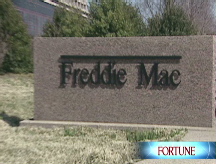There are some clear tell-tale dynamics among the American people that I believe go a long way towards explaining why the American people have not taken to the streets to round up the members of the Bush administration, most notably the Cheney/PNAC cabal, and burn them alive for their roles in the events of 9/11. What I mean by this is that the officially acknowledged body of evidence so convincingly incriminates insiders that I can not imagine the American people taking out their anger on the real culprits.
Think about the rage you felt towards al Qaida and the Taliban when you were told that they were the people responsible for 9/11. Well, just imagine the rage you would feel when you realize that the evidence actual points more directly to a sitting American vice president and his comrades in the Department of Defense and in the Defense Policy Board. I know how I feel and I assume, maybe naively, that I am not alone.
Back to point of this article. Let me point out a few interesting dynamics and personality types that I have observed when it comes to the American people and their attitudes towards the official body of evidence as it pertains to 9/11 culpability.
9/11 Myth Huggers: 7 Years of Ignoring the Evidence
In WMD Report, U.S. Gets a C
Seven years after the Sept. 11, 2001, attacks, the federal government has made only limited progress toward preventing a catastrophic nuclear, biological or chemical attack on U.S. soil and combating the proliferation of weapons of mass destruction abroad, according to a report card to be issued tomorrow by 22 former U.S. officials.
Fannie & Freddie: Buying friends in D.C.
 When it came to buying influence in Washington, Freddie Mac and Fannie Mae were among Corporate America's biggest spenders.
When it came to buying influence in Washington, Freddie Mac and Fannie Mae were among Corporate America's biggest spenders.
The two mortgage giants paid $174 million to lobbyists over the past ten years to ensure the political climate would remain friendly to growing the mortgage business - even as the housing bubble began showing signs of bursting, according to a report by the Center for Responsive Politics, a watchdog group.
French revolt over Edvige: Nicolas Sarkozy's Big Brother spy computer
President Nicolas Sarkozy faced an embarrassing split in his Cabinet today over a computer system that a new French internal intelligence service will use to spy on the private lives of millions of law-abiding citizens.
Hervé Morin, the Defence Minister, broke government ranks to side with a growing revolt against Edvige, an acronym for a police database that will store personal details including opinions, the social circle and even sexual preferences of more or less anyone who interests the State.
Scientists receive death threats over 'end-of-world' experiment
The scientists behind the world's biggest ever scientific experiment have received death threats from critics who claim it could cause the end of the world.
Experts are attempting to recreate the forces that occurred in the immediate aftermath of the Big Bang, which created the universe.
TVNL Comment: When "scientists" exploded the first hydrogen bomb there were fears that the explosion, which essentially exploded the atmosphere, would not be contained. They could have ended life on Earth that day. When people think we live in a democracy I ask them if they voted to permit that to happen? We have no say on what happens to "our" world. Understand that. A small number of people run this world and we have no say about it.
Wasilla Police Billed Sexual Assault Victims for Their Own Rape Kits
While Sarah Palin was serving as the Mayor of Wasilla, Alaska, the city charged victims of sexual assault between $300 and $1200 for their own rape kits.
Please note that the Governor who signed the new law preventing sexual assault victims from paying for their own rape kits was a Democrat, Tony Knowles.
TVNL Comment: America, the greatest nation in the world. What a sad joke.
Despite the Hype, Statin Drugs Found Medically Useless in Preventing Alzheimer's
 Cholesterol-lowering statin drugs do not provide any protection against Alzheimer's disease, according to a study conducted by researchers from the Rush University Medical Center in Chicago and published in Neurology, the journal of the American Academy of Neurology.
Cholesterol-lowering statin drugs do not provide any protection against Alzheimer's disease, according to a study conducted by researchers from the Rush University Medical Center in Chicago and published in Neurology, the journal of the American Academy of Neurology.
"This study adds to the growing evidence that statins don't lower the risk of Alzheimer's disease," lead researcher Zoe Arvanitakis said. "The study also found no association between taking statins and a slower cognitive decline among older people."
Video Shows US Carnage In Afghanistan
The grainy video eight-minute footage, seen exclusively by The Times, is the most compelling evidence to emerge of what may be the biggest loss of civilian life during the Afghanistan war.
These are the images that have forced the Pentagon into a rare U-turn. Until yesterday the US military had insisted that only seven civilians were killed in Nawabad on the night of August 21.
More...
NASA chief blasts US space policy in leaked email
An internal email from NASA chief Mike Griffin has been leaked to the media. It expresses Griffin's frustration with recent US space policy, says that White House oversight offices have waged a "jihad" against the space shuttle, and offers a gloomy view of the future.
The Ares rockets and Orion capsule will be NASA's next manned spacecraft, but they will not be in service until 2014 or later. Meanwhile the shuttle is currently marked for retirement in 2010, leaving the US dependent on Russian Soyuz ships for access to the International Space Station (ISS).
Page 1107 of 1175





































